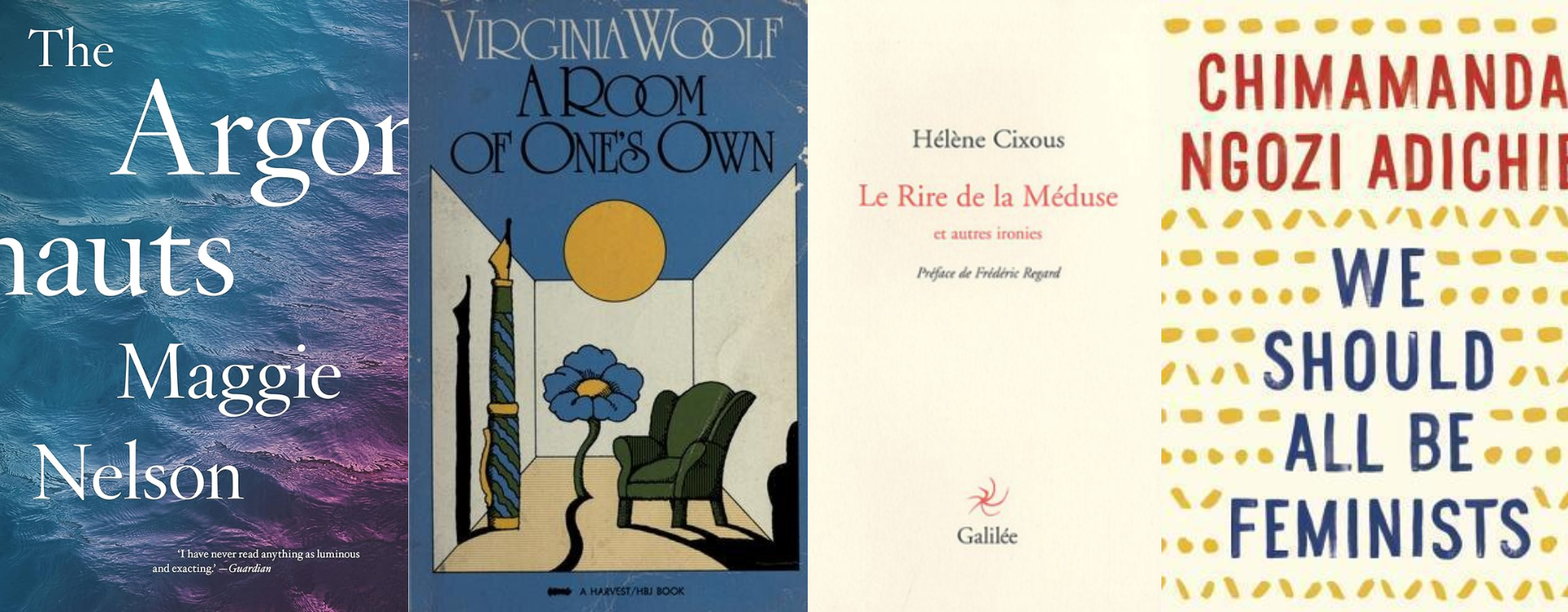
The Argonauts by Maggie Nelson

God, I adored this book. It follows the author, Maggie on her journey through pregnancy and IVF, whilst her partner, Harry, is undergoing gender-affirming surgery. She utilises philosophical theory to ground her work at times, then switches to a personable, humorous manner. The novel is a confessional of the inevitable messiness of life, and concerns motherhood, marriage, maternity, pregnancy and sex – but in a way that turns them on their head. Maggie and Harry’s experience of navigating the construction of a family dynamic that is anything but traditional is nothing short of beautiful and electrifying to read.
“Poor marriage! Off we went to kill it (unforgivable). Or reinforce it (unforgivable).”
A Room of Ones Own by Virginia Woolf

Woolf’s groundbreaking essay addresses the status of women in literature and society. It was written based on lectures that were given by Woolf around the time women in Britain gained the right to vote. One has to read Woolf’s A Room of One’s Own through a historical lens and recognise how progressive it was – it provides us with a view of how far we’ve come, and how much farther we must go. She lays bare the structure of male privilege and female exclusion at the time – from independence, income and education. And how, to write as a woman, one must have the economic and social ability to do so – when men do not have these structural barriers.
“Lock up your libraries if you like; but there is no gate, no lock, no bolt that you can set upon the freedom of my mind.”
The Laugh of The Medusa by Helene Cixous

Whilst not a book, this critical feminist theory is one of the best literary pieces I’ve read. I recommend it to everyone – it’s only 20 pages! Cixous writes about women in the literary field, suggesting that traditional “male writing” obscures women or reinforces classic representations of women, perpetuating their repression. She argues for écriture féminine (women’s writing) as a mode of challenging this phallocentric writing by disrupting traditional language and structures that underpin male authorship. She argues for a form of women’s writing that uses the female body as a source of power and inspiration. To write a “feminine text” is a subversive act of transgression, disrupting traditional “repressively masculine” writing through changing the way women write and read literature.
“You only have to look at the Medusa straight on to see her. And she’s not deadly. She’s beautiful and she’s laughing.”
We Should All Be Feminists by Chimamanda Ngozi Adichie

It may seem small, at 54 pages, but We Should All Be Feminists is such an important read. Nigerian author Chimamanda Ngozi Adichie also delivered the text as a Ted Talk, so if books aren’t your thing, watch her speech on YouTube. It is an easy read, due to her personable tone and short length, but a captivating one. Adichie talks of her experience of sexism growing up in Nigeria and how it has affected her life, what it means to be a feminist, and emphasizes the need for everyone to be involved in the fight for gender equality.
“I have chosen to no longer be apologetic for my femininity. And I want to be respected in all my femaleness. Because I deserve to be. I like politics and history and am happiest when having a good argument about ideas. I am girly. I am happily girly.”
Written by Mollie Matthews
Views: 1
